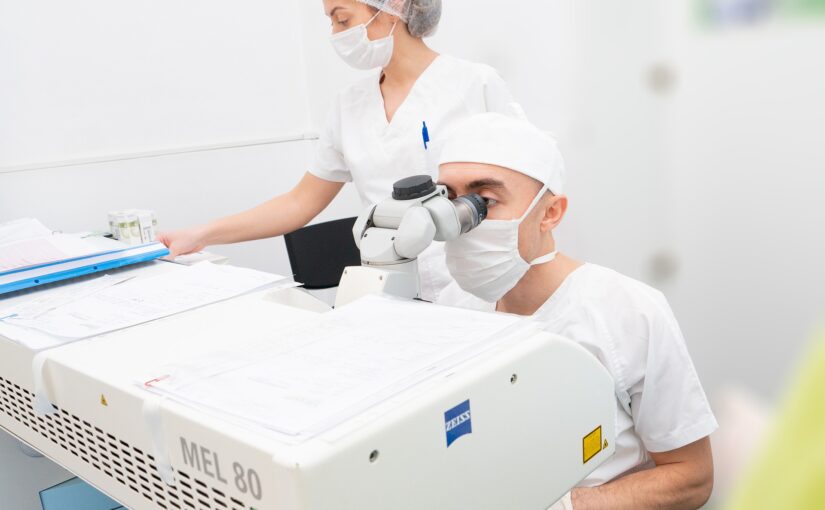When you attend a laser eye surgery consultation, it is important to use the time wisely. Don’t be afraid to ask questions about the procedure and also the surgeon!
Any experienced doctor will respect this and should be happy to answer your queries – their responses will help you to determine whether or not to proceed with surgery at the clinic.
Here are 6 essential questions to ask…
1. Are you on the General Medical Council’s Register?
The only legal requirement for doctors performing laser eye surgery is that they are registered with the General Medical Council. All registered doctors are issued with a certificate and should have no problem showing it to you.
If the surgeon is evasive, you can check if they are registered to perform laser eye surgery by searching online.
2. Are you a member of the Royal College of Surgeons/Ophthalmologists or equivalent?
The RCOphth runs an examination in laser refractive surgery. If you see the phrase ‘CertLRS’after their name, it means the surgeon has achieved ‘The Certificate in Laser Refractive Surgery’ and is subject to an annual appraisal as part of the revalidation process. By holding this certificate, you can be sure that the surgeon is competent and has ample experience.
The certificate is not compulsory but surgeons are encouraged to take the examination to assure members of the public about their surgical competence.
3. How long have you been performing the procedure?
Most patients tend to choose doctors that have a lot of experience – after all, we only have one pair of eyes! We would suggest 2 or 3 years as a minimum and preferably a surgeon with vast experience.
A surgeon’s expertise is very important in order to screen patients properly.

4. What is your success rate for for my eye prescription?
Every patient is different and the surgeon should be suitably experienced to deliver personalised care to each person.
It is important to remember that not all surgeons and all lasers can treat all prescriptions, so ask the doctor how much experience they have with your prescription – ideally, you want a surgeon that has a high success rate.
5. Do you use state of the art technology?
Any quality surgeon should not be relying on dated surgical technology, as it is more likely to contribute to a poor result. Some clinics use lasers that have not been updated for several years – leading clinics should use only the safest and most advanced technology to provide outstanding results.
Don’t fall for any marketing gimmicks which state outrageous claims with little evidence to back them up. All quality surgeons will be able to demonstrate impressive long-term results using lasers from recognised medical equipment manufacturers.
6. What aftercare do you provide?
One of the easiest ways to spot a sub-standard surgeon or clinic is to ask them about their aftercare provision. Anything less than 3 months of aftercare is a red flag! Also ask about the access you will have to the surgeon during the aftercare period.
Aftercare can be as important as the surgery itself – you need to be confident that your doctor is there for you if complications arise.

